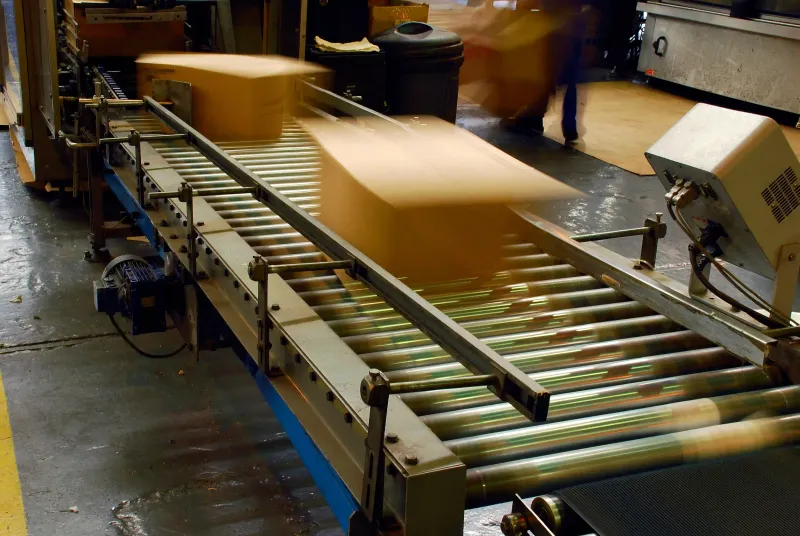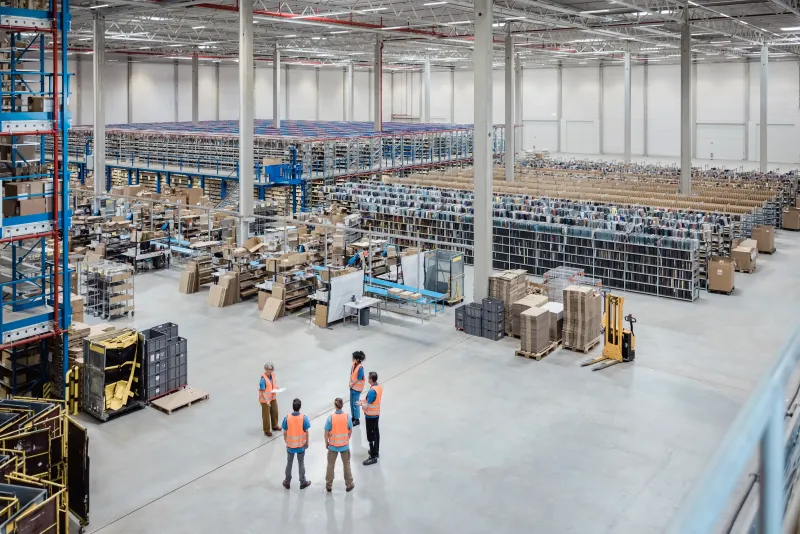Logistics Platforms

Logistics platforms: The future of Digital Logistics
In the modern world of logistics, efficiency and flexibility are crucial for success. Digital logistics platforms offer companies the opportunity to make their supply chains more transparent and flexible. They are designed to seamlessly integrate the various processes in logistics to ensure an optimized and end-to-end supply chain. By using smart technologies and cloud-based solutions, logistics processes can be automated and thus made more efficient, which ultimately improves product availability and reduces costs.
How does a logistics platform optimize the supply chain?
A digital logistics platform offers a variety of benefits that contribute to improved delivery and fulfillment. Key benefits include increased visibility and control over the entire supply chain, enabled by data sharing and tracking tools. These platforms enable proactive control of delivery processes, leading to more efficient management of inventory and resources. In addition, they promote collaboration between different players within the supply chain, including suppliers, shippers and carriers, which strengthens the entire logistics industry.
Logistics platforms help you to manage your logistics processes successfully or to plan them if you are looking for new logistics solutions.
How does transparency improve efficiency in logistics?
Transparency plays a crucial role in increasing efficiency in logistics. By providing information on the status of shipments and inventories, a logistics platform enables companies to make better decisions and optimize their processes. Supply chain visibility is a key element here, allowing companies to identify and resolve bottlenecks at an early stage before they lead to serious problems. This transparency leads to more reliable and efficient delivery processes, which ultimately increases customer satisfaction.
In addition, transparency in logistics also helps to reduce risk, as companies are able to proactively identify and respond to potential disruptions, such as weather events or delivery delays. By using modern technologies such as IoT (Internet of Things) and blockchain, companies can not only track the current status of their goods, but also make the entire supply chain traceable.
The integration of such technologies not only promotes efficiency, but also trust between partners in the supply chain. When everyone involved has access to the same information, collaboration is optimized, misunderstandings are reduced and common goals can be pursued more effectively.
In addition, analyzing the collected data allows trends to be identified and well-founded forecasts to be made. This enables companies to better manage their stock levels, avoid overstocking and adapt production planning to actual demand. This leads to cost savings and a more sustainable use of resources.
Overall, it is clear that transparency is not only a tool for increasing efficiency, but also makes a significant contribution to the agility and resilience of logistics processes. Companies that rely on transparency are better equipped to respond to changing market conditions and customer requirements, which gives them a competitive advantage.

What role does digitalization play in the modern supply chain?
Digitalization is revolutionizing the modern supply chain by providing innovative solutions that increase the efficiency and flexibility of logistics processes. By using digital technologies, companies can automate and optimize their workflows, which leads to a reduction in time and costs. Digitalization enables improved communication and collaboration between partners in the supply chain, speeding up processes and minimizing the risk of errors. It also supports the sustainable development of the logistics industry by reducing CO2 emissions through optimized transport routes and improved use of resources.
How does a cloud-based solution support logistics processes?
Cloud-based solutions are an essential component of modern logistics platforms. They offer the advantage of being flexible and scalable, which enables companies to quickly adapt their systems to changing requirements. These solutions support logistics processes by enabling fast and secure data exchange between the various parties involved. They also facilitate the integration of different IT solutions and modules, which simplifies the automation and optimization of logistics processes. Thanks to the cloud, companies can also access their systems from anywhere, which increases mobility and responsiveness.
Another important aspect of cloud-based solutions is the ability to analyze data in real time. Companies can access and analyze large amounts of data to identify patterns and trends that help improve efficiency and reduce costs. The use of artificial intelligence and machine learning in combination with cloud-based platforms enables companies to carry out predictive analyses and make informed decisions.
Another advantage of cloud technology is the security of the data. Thanks to modern encryption and security protocols, many cloud providers offer a high level of protection against data loss and cyber attacks. Companies can therefore store and manage their sensitive information securely without having to worry about the infrastructure.

Why is cooperation with logistics partners crucial?
Collaboration with logistics partners is crucial as it strengthens the entire supply chain and increases the efficiency of processes. By working together, companies can benefit from the respective strengths of their partners and leverage synergies that lead to the optimization of supply processes. These partnerships promote the exchange of best practices and innovative solutions that make the entire supply chain more flexible and resilient. Close collaboration with partners also enables companies to jointly respond to challenges, improving the reliability and sustainability of logistics services. Logistics platforms also offer the great advantage that partners can join forces in a central location and in this way also jointly increase their presence.
Logistics platforms are the perfect place to connect logistics partners, join forces and ensure that you find the perfect solution for your process challenge.
How can partnerships strengthen the logistics sector as a whole?
Partnerships have the potential to strengthen the logistics industry as a whole by facilitating access to new technologies and markets. By working with different players, companies can develop and implement innovative solutions that improve the efficiency and sustainability of logistics processes. These collaborations promote knowledge sharing and the joint development of standards that drive the industry forward. In addition, strong partnerships help the logistics industry to better respond to global challenges and thus increase its competitiveness on an international level.